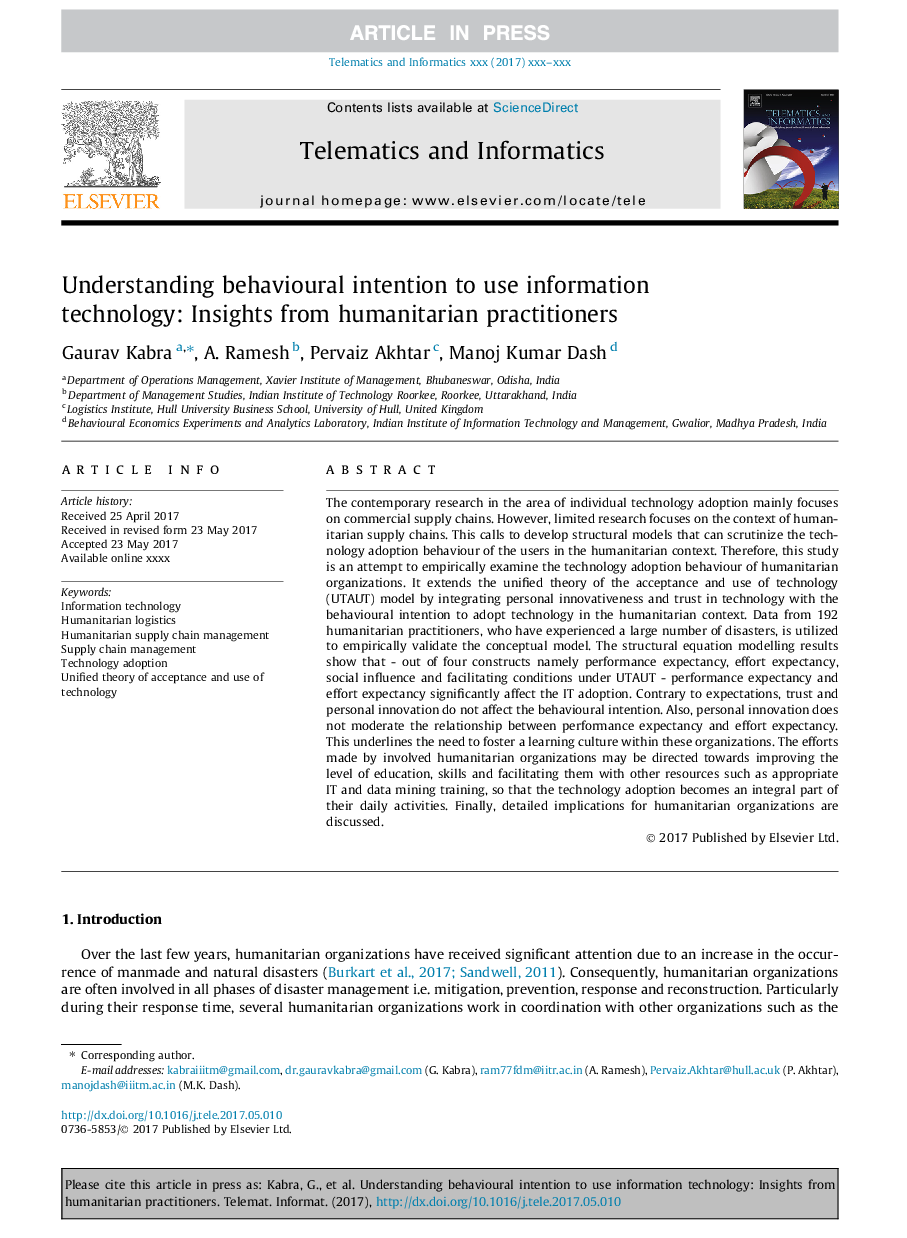| Article ID | Journal | Published Year | Pages | File Type |
|---|---|---|---|---|
| 6890020 | Telematics and Informatics | 2017 | 12 Pages |
Abstract
The contemporary research in the area of individual technology adoption mainly focuses on commercial supply chains. However, limited research focuses on the context of humanitarian supply chains. This calls to develop structural models that can scrutinize the technology adoption behaviour of the users in the humanitarian context. Therefore, this study is an attempt to empirically examine the technology adoption behaviour of humanitarian organizations. It extends the unified theory of the acceptance and use of technology (UTAUT) model by integrating personal innovativeness and trust in technology with the behavioural intention to adopt technology in the humanitarian context. Data from 192 humanitarian practitioners, who have experienced a large number of disasters, is utilized to empirically validate the conceptual model. The structural equation modelling results show that - out of four constructs namely performance expectancy, effort expectancy, social influence and facilitating conditions under UTAUT - performance expectancy and effort expectancy significantly affect the IT adoption. Contrary to expectations, trust and personal innovation do not affect the behavioural intention. Also, personal innovation does not moderate the relationship between performance expectancy and effort expectancy. This underlines the need to foster a learning culture within these organizations. The efforts made by involved humanitarian organizations may be directed towards improving the level of education, skills and facilitating them with other resources such as appropriate IT and data mining training, so that the technology adoption becomes an integral part of their daily activities. Finally, detailed implications for humanitarian organizations are discussed.
Keywords
Related Topics
Physical Sciences and Engineering
Computer Science
Computer Networks and Communications
Authors
Gaurav Kabra, A. Ramesh, Pervaiz Akhtar, Manoj Kumar Dash,
